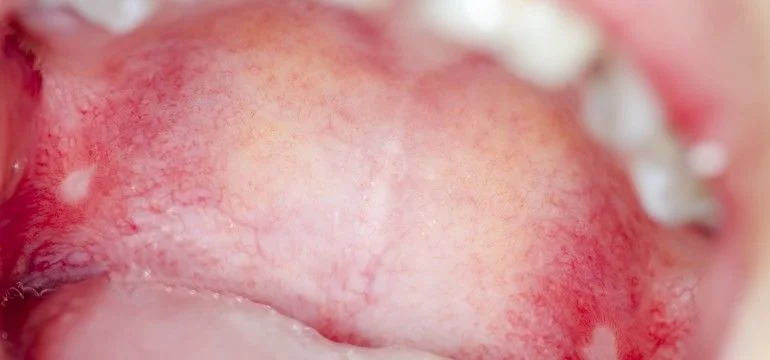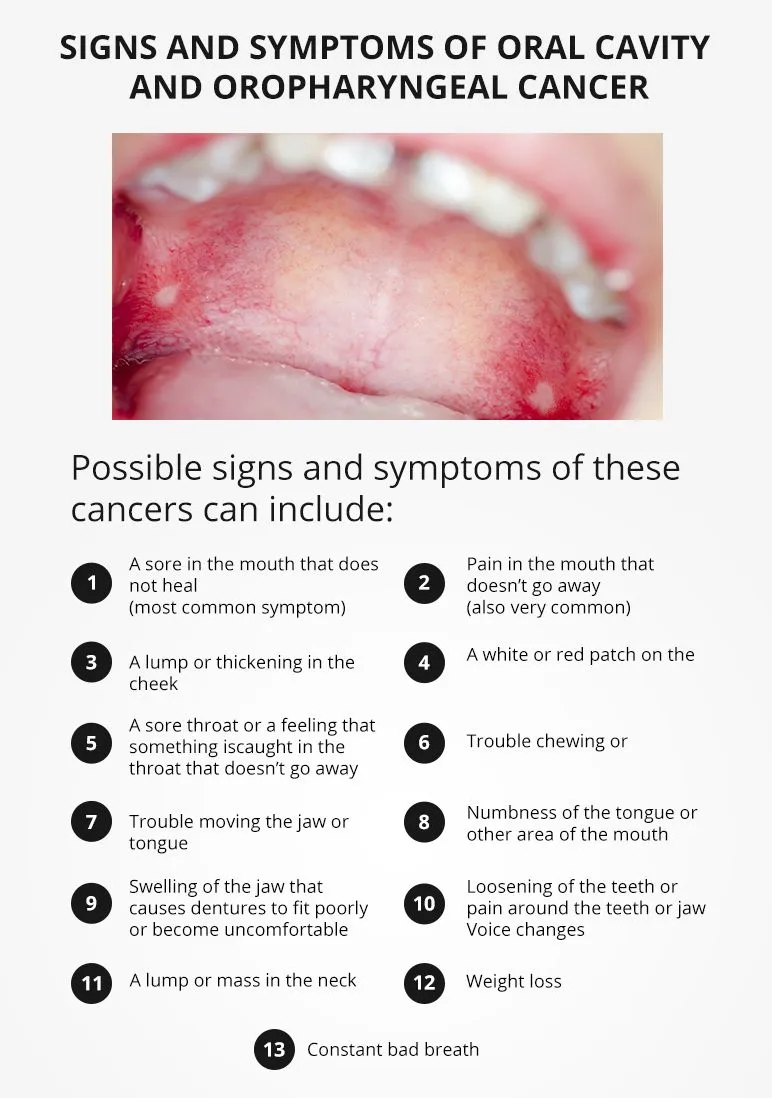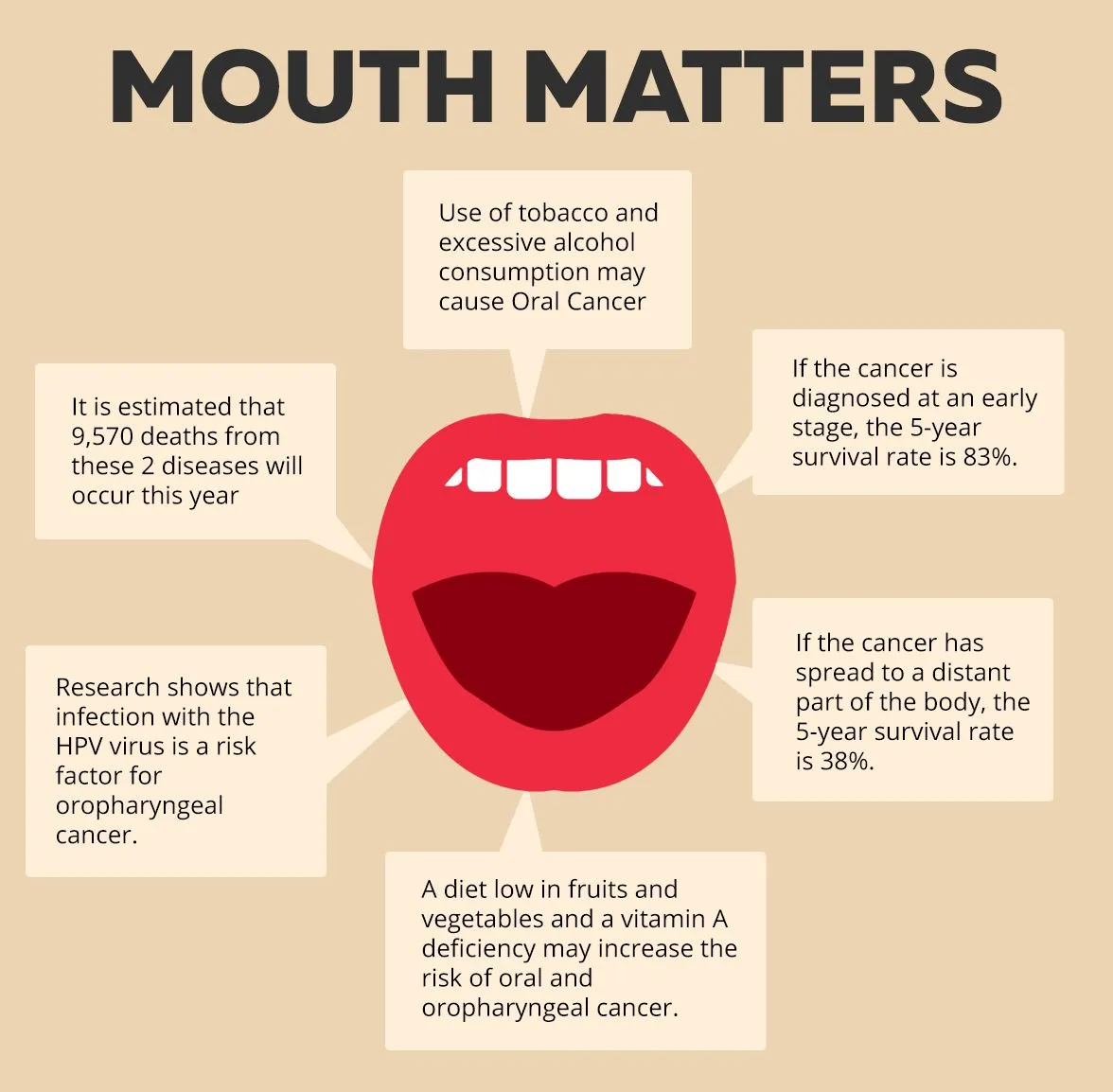- FREE SHIPPING ON $40 AND ABOVE

Patients frequently claim that their mouth's roof hurts, according to several doctors and dentists. Without a question, the thin, sensitive skin that covers the roof of the mouth experiences a lot of daily wear and tear. As a result, the hard palate in your mouth or the roof of your mouth occasionally may bother you or result in uncomfortable problems like swelling and inflammation. If you're a patient experiencing pain, this blog will educate you on the typical reasons of the pain, the appropriate treatment approaches, and even preventative actions you can do at home. Statisticians estimate that 75% of people worldwide get mouth sores.
Even though mouth sores are frequently considered as small inconveniences, they can have a big impact on our general health and wellbeing. It is crucial to keep an eye out for mouth sore symptoms and to take preventative measures. These ostensibly benign lesions may be a sign of a number of underlying conditions, including vitamin deficiency, autoimmune diseases, or viral infections. These symptoms can become more serious if they are disregarded or ignored. When it comes to sores at the mouth of roof, alongside mouth swelling, you can also have other serious symptoms like pain, dry mouth, ulcers, and blisters. Additionally, mouth sores can be uncomfortable and disruptive to our regular activities, impairing our capacity to comfortably speak, eat, and even smile. When we pay attention to the early warning signals and promptly seek medical care, we not only reduce discomfort but also potentially serious underlying health issues. So keep in mind that a brief ache in the mouth could be a vital signal from your body that requires attention and care.
In severe cases, swelling and pain can both be felt on the roof of the mouth. Even though the cause of this issue is typically not severe, there are a few instances where the conditions that cause this discomfort are rather dangerous. Hepatitis, liver conditions, and mouth cancer are a few of these.
A number of issues can be indicated by the state of having a dry mouth. Dry mouth is typically a sign of trauma or a blockage in the salivary glands. Drinking excessive amounts of alcohol can also cause dehydration, which can dry up the mouth and cause the roof of the mouth to expand.
Cold sores cause the formation of tiny nodules or bumps in the mouth, usually on the sides of the tongue. These patches can become larger and become uncomfortable as they do.
You may experience cramps, severe contractions, and muscle spasms when the amount of electrolytes in your body drastically drops. Therefore, it is essential to maintain enough mineral levels that would prevent dehydration.
Understanding the causes of mouth sores is essential for both successful care and prevention of this frequent condition. These annoying mouth irritants might have many different causes. Minor mouth ulcers, also known as aphthous ulcers, might develop as a result of trauma from biting your tongue or cheek, hormonal fluctuations, or stress. On the other hand, more chronic or recurrent mouth sores may be a sign of various health issues, including autoimmune illnesses, viral infections (like herpes simplex), and nutritional deficiencies, particularly in the B vitamins (B12, iron, and folate). Mouth sores can also be caused by some drugs or even adverse responses to dental supplies. By understanding the various origins of these oral discomforts, we are better equipped to prevent them and, when necessary, seek the right treatment to relieve the pain and successfully address the underlying problems.
Mouth sores can sometimes serve as red flags for various infections that can affect our oral health. One of the most common viral infections associated with mouth sores is herpes simplex virus (HSV), which can cause painful cold sores or fever blisters on the lips or inside the mouth. Another viral culprit is the coxsackievirus, responsible for hand, foot, and mouth disease, characterized by painful sores in the mouth, on the palms of the hands, and soles of the feet. Bacterial infections like streptococcus can lead to painful ulcers, and fungal infections, such as candidiasis (thrush), can result in white patches or sores in the mouth. These infections can range in severity and often require specific treatments, highlighting the importance of promptly identifying and addressing mouth sores to ensure both oral and overall health.
The herpes simplex virus, also referred to as the herpes virus, causes mouth sores to develop. Additionally, the varicella zoster and chickenpox viruses might result in recurrent side mouth sores. Both when they are raw and while receiving therapy, these hurt.
Mouth sores and swelling can be brought on by bacterial infections brought on by poor oral hygiene and tooth decay. On a more serious note, increased candida yeast production in AIDS patients causes them to experience pain at the roof of their mouths. It should be emphasized that syphilis or one of them could induce contagious mouth sores.
If you have a physical injury, the inside of your mouth, especially the roof, may swell. Cheek bites or any other orthodontic issues could be to blame for this. Foods that are acidic or spicy can also irritate the mouth's roof, and dental cleaning agents can further aggravate the condition.
Tobacco usage in excess can cause excruciating oral pain. Tobacco can cause serious mouth irritation because of the poisonous waste it contains. In addition to making the roof of the mouth swell, smoking also makes the mouth dry and impairs the body's defenses.
Medical Procedures:
Mouth sores, those bothersome and occasionally painful irritations, often interfere with our everyday activities and cause us to look for relief. Fortunately, there are a ton of natural cures that can help stop these annoying mouth annoyances. There are many things to consider, ranging from minor adjustments to our everyday routines to natural products that are conveniently located in our kitchens. We'll explore a selection of efficient home treatments in this article that not only provide soothing comfort but also help to lessen the occurrence of mouth sores. These at-home remedies are here to help you get a healthier, happier smile, whether you're trying to find a means to stop those pesky ulcers or are looking for solace during an outbreak.
Salt, which has anti-bacterial qualities, aids in reducing mouth sore pain. Additionally, it helps to sterilize the mouth, preventing the growth of bacteria and germs. As a result, combine salt and water and gargle with it before spitting it out. Try it out for a week for a minute each day, and you'll be amazed by the effects.
Aloe Vera is beneficial for all conditions, including oral inflammation and open wounds. Cut apart a leaf, take some Aloe Vera gel on your fingertip, and apply it to the diseased region. In addition to this, it also gives you a pleasant experience. For quick and efficient results, repeat this two times per day.
Watch as the cold sensation locks up the blood flow in the affected area and provides a cooling sensation by holding an ice cube over it.
the oil has an anti-bacterial and anti-inflammatory qualities, making it your best bet for mouth sores. You should swish one quart of this miracle oil in your mouth for thirty seconds before spitting it out.
Mouth sores can be relieved by combining equal quantities of coconut milk and honey and applying it to the afflicted area.
Although the aforementioned home remedies have been tried and proven, if you experience mouth sore symptoms and they do not go away, it is strongly advised that you stop self-medicating and go see a general practitioner right once.
For instance, if you have any of the following symptoms, you should seek medical attention right away:
The treatment you receive from your doctor depends on how severe your symptoms are. For instance, your doctor might take some cell scrapings from the roof of your mouth and send them for a biopsy if your symptoms last for longer than a week. Additionally, a microscope examination of the cells might also help your doctor determine the precise nature of the problem.

Mouth sores can be quite uncomfortable, both literally and figuratively. The good news is that there are several treatment options available to not only relieve discomfort but also prevent their recurrence. Dealing with these annoying irritations can be unpleasant. We'll look at a variety of potent remedies and preventative practices to help you manage and get rid of mouth sores.
If you suffer a physical injury or accidently burn the roof of your mouth, you should rinsing it with cool water right away. Also helpful in this situation are oral gels and calming gels.
You may need to drink a lot of fluids and soothing liquids if the sores on the roof of your mouth are caused by an electrolyte imbalance. If the situation is critical, you might also need immediate attention and be going to the hospital's emergency room.
Cold sores and canker sores typically disappear on their own in a period of ten days or less. You might be given antibiotics as well as certain painkilling gels as a result of the fact that they don't.
Your doctor might recommend an oncologist if cancer is the cause of your symptoms. As a result, a range of alternatives, such as radiation therapy, chemotherapy, or surgery, would be considered for you. In-depth, mouth cancer is a really serious ailment that grows and develops on your palate. Additionally, it could result in pain and swelling throughout your entire mouth. The ulcers on the roof of the mouth may be caused by mouth cancer. It is separated into two categories: lymphoma melanoma. Both of these can cause excruciating pain in your mouth's roof since they happen near your tonsils and the base of your tongue.

Finding the best treatments for mouth sores is important, but taking proactive measures to avoid these oral irritations is also important. Since our oral health and general health are closely related, it is crucial to take precautions to avoid these uncomfortable sores. With these preventative techniques that can give you a healthier, more comfortable smile while preventing mouth sores. Understanding how to protect oneself from these annoyances, whether through dietary choices or dental hygiene routines, is an essential first step toward a mouth that is pain-free and secure.